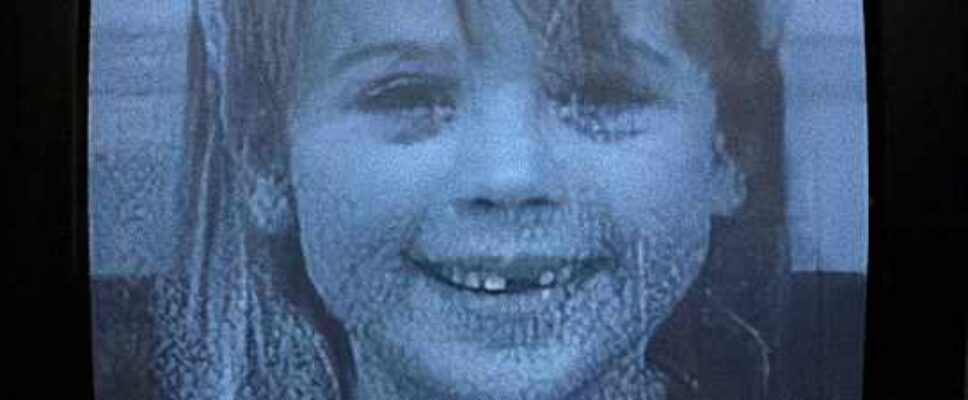Teresa Reviews “Murder on the Orient Express” (2001)
Teresa Reviews “Murder on the Orient Express” (2001) and finds a rumpled Poirot who says, “Murder outside the law? Nah, it’ll be fine.”
Fidelity to text: 3 knives
![]() Three fewer suspects, a date change to 2001, and our star’s 6 foot 2. But the story’s still there.
Three fewer suspects, a date change to 2001, and our star’s 6 foot 2. But the story’s still there.
Quality of film on its own: 3 knives
![]() Way better than it should have been. Decently shot, edited, acted, but Poirot’s wardrobe was a mess.
Way better than it should have been. Decently shot, edited, acted, but Poirot’s wardrobe was a mess.
Read more of Teresa’s Agatha Christie movie reviews at Peschel Press.
Also, follow Teresa’s discussion of these movies on her podcast.

Like Austin Trevor and Peter Ustinov — two other Poirot portrayers — Alfred Molina is a big man. Unlike Trevor and Ustinov, Molina was poorly served by the wardrobe department. Poirot is supposed to be dapper and well-groomed. His shoes are shined, his tie’s never askew, his shirts are crisp with starch, and there’s nary a wrinkle in sight. He’s the most formally dressed man around. When the rest of the world gave up waistcoats and pocket watches with fobs, Poirot remained impeccable. This is true whether the movie is set in the 1930’s or the 1980’s.
Not here. For some mysterious reason, the costumer chose to update Poirot into a cleaned-up Columbo. From the opening scene with Poirot’s tie askew to the sports jacket and ill-fitting pants, the baggy trench-coat, and those lavender socks, Molina’s Poirot needed a makeover and an iron. Compare him to Pierre Michel, the conductor, or Herr Bouc, the director of the Orient Express. They’re immaculate. When David Suchet first took on the role of Poirot, he demanded that wardrobe make him look the part. He turned down a baggy brown suit and got his morning clothes. I don’t know why Alfred Molina didn’t say something.
Does this matter? Yes, it does. When the audience expects a detective renowned for his compulsive fastidiousness, seeing someone who’s almost a slob affects their critical judgement. Molina got marked down in the Poirot rankings because of how he looked. His acting was fine! He’s a head taller than Agatha’s description but so were Trevor and Ustinov. It’s the mindset that matters the most. Molina’s Poirot was observant, willing to badger suspects into revealing vital clues (watch him goad Arbuthnot about Mary Debenham; the man might as well have worn a sign saying “mine”), dogged, clever, thorough, patient, and able to reach conclusions covering all the facts.
But he didn’t look the part. Even Tony Randall in the dreadful Alphabet Murders was perfectly turned out, including in the bowling alley and the steam bath.
I have less of an issue with the script stuffing in Vera Rossakoff.

Poirot’s scene with Vera also demonstrates a critical aspect of his character. When Vera’s not skirting the law, she oversteps it into full-on criminal behavior. Poirot stands for justice, law and order. He’s a policeman. She’s a thief (at best) and associates with very unsavory people. Her very existence tests Poirot’s moral code. This is important because the ending of Orient Express requires Poirot to make a critical and extremely difficult decision.
Should he let the strictest interpretation of justice prevail? Ratchett was an evil man who directly or indirectly caused the death of four people and devastated the lives of everyone who knew the victims. But he was still murdered in cold blood, for revenge. Should his murderers face the justice he escaped?
Or should they be permitted to escape justice, since they did what the courts could not do: execute a man who deserved it but got off on a technicality.
In the novel, Poirot agonizes over this decision. Letting murderers go free — even praiseworthy ones! — chaffs every fiber of his being. Yet that’s what he chooses to do. It was not an easy decision. It shouldn’t be, because therein lies the swift road to vigilante justice.
That’s the other reason this movie doesn’t succeed. Poirot’s scene with Vera sets us up for his agonized decision. Yet when decision-making time comes, there’s not a whisper of his concerns about ethics. There should have been, especially since Poirot lectured Vera about adhering to principle. Nothing. It weakened the ending. Viewers came away remembering a slob with no moral fiber.
No wonder people don’t regard this Poirot outing with any kindness.
Yet it’s not a bad movie. It’s much better than it could have been. The setting changed from winter to summer but that’s because a rockslide is cheaper than filming snow. The updating to 2001 worked surprisingly well. It let the script make jokes about Ross Perot, Brad Pitt, Ron Popeil, and third-tier actresses who portray recurring characters on soap operas. When the VCR ate the tape, Bill was instantly transported back into the past when he also had to clean tangles of tape out of ours.

The characters got logical updates. Instead of being aviators, Armstrong and Arbuthnot are brilliant software designers. Mary Debenham becomes Daisy’s tutor. Foscarelli becomes Armstrong’s personal trainer. McQueen meets Sonia Armstrong through his work at the museum; she’s on the board. Probably the least likely change was making Princess Dragomiroff into a South American dictator’s widow.
The script also worked in several Agatha Christie references. A character gushes to Poirot about his expert solving of Roger Ackroyd’s murder and asks how he realized how the strychnine was administered at Styles. In the epilog, the actress is acting at a dinner theater in Salt Lake City. She’s performing in The Mousetrap.


This version of Orient Express is interesting and often funny. It could have been better with another pass at the script, less Vera, and a finer wardrobe for Poirot. But it’s still good enough.

